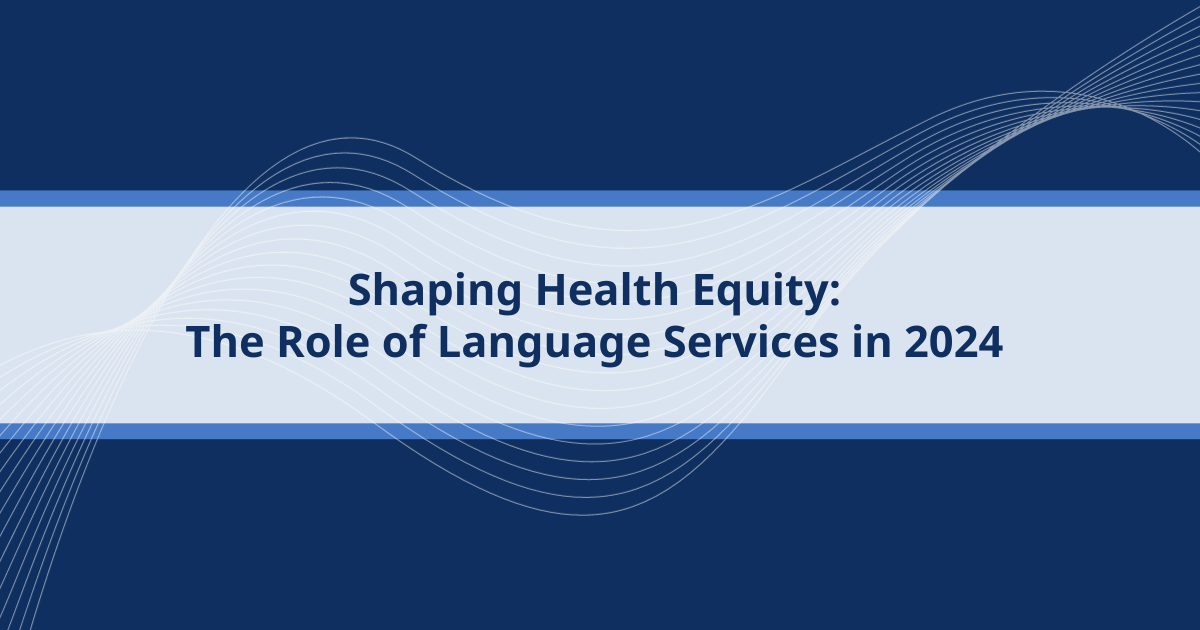The focus on health equity continues to be a pivotal force in the healthcare industry's evolution. With 2024 on the horizon, health systems and health plans are set to intensify their efforts to address disparities and advance equity within diverse populations. This isn't just a moral imperative; it's a compliance requirement and a strategic business move.
A critical element in this pursuit of health equity involves language services. Leslie Iburg, ULG’s Director of Healthcare Accounts, elevates trends that healthcare professionals need to consider when establishing their goals and budgets for 2024 and beyond.
Compliance Factors Drive Change
The healthcare landscape is governed by a myriad of laws and regulations concerning language accessibility. Staying on top of these evolving compliance factors is crucial to avoid the risks associated with non-compliance, such as lawsuits, financial penalties, and reputational damage. One of the latest additions for 2024 is the Final Rule for Medicare Advantage and Medicare Prescription Drug Benefit Programs, which strengthens translation and accessible format requirements in an effort to drive more meaningful access for enrollees.
Iburg urges plans to take a more proactive approach by identifying the communication preferences of enrollees within their service area. This includes a deeper look at the languages spoken by populations below the 5% threshold, as well as gaining insights into the preferred modes of communication and including accessible format needs. This strategic foresight enables plans to proactively cater to the diverse needs of their enrollees, while also staying ahead of the compliance curve.
Competitive Pressure and Economic Realities
The competitive landscape within Medicare, Medicaid, the ACA Marketplace and even employer-sponsored plans is intensifying, placing a strong emphasis on access, equity, and member experience. Health plans need to continuously improve in-language communications to create a significant return on investment in terms of better outcomes and higher member satisfaction.
Economic forces are also at play. Despite stretched budgets and post-pandemic challenges, investing in quality language services isn't an expense to trim, but an opportunity to elevate the healthcare experience while achieving significant cost savings in the long run.
“Trying to do more with less is always a concern,” says Iburg. “I always advise clients to look holistically at language services. For the greatest operational and cost efficiency, it’s best to centralize efforts with one full-service language service provider (LSP). This not only streamlines internal efforts, but it ensures quality and brand consistency across all platforms of communication, which is critical in healthcare.”
Advancing Equity through Language Access
The interconnection between language access and health equity cannot be understated. For organizations aiming to foster an equitable healthcare landscape, a relentless dedication to understanding, respect, and inclusion is paramount.
As an expert in language services, ULG can support healthcare organizations to ensure they are aligned with the emerging trends and standards, not only meeting compliance but also excelling in their mission to provide equitable healthcare services.
To take a deeper dive into these key factors and considerations, download the full report here: Advancing Health Equity through Language Services: Considerations for 2024.

